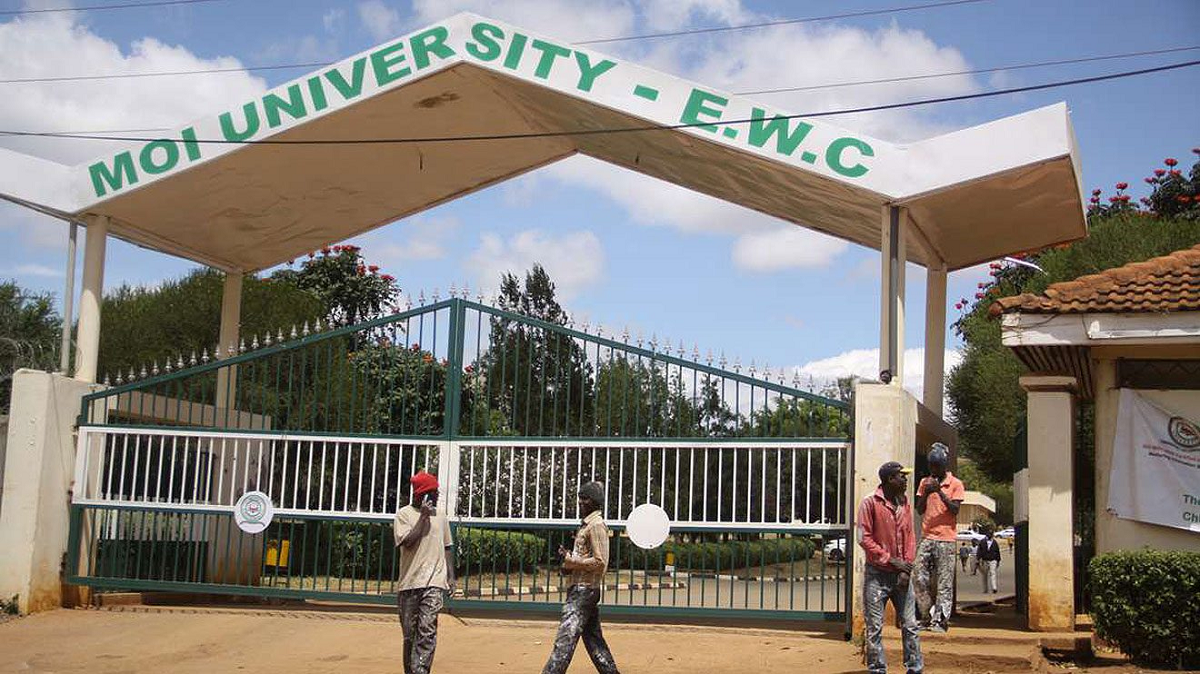As of August 16, 2024, at least 127,623 students had applied for new university funding according to Education Cabinet Secretary Julius Migos Ogamba.
This comes amidst several complaints about the new university funding model, with a number of students complaining that they have been placed in the wrong bands.
In the New Funding Model, instead of a uniform grant, funding is based on the Means Testing Instrument (MTI) to determine the level of need for government scholarships and loans. The MTI system has grouped students in five bands, according to their needs.
“In line with the President’s directive, the Ministry is pleased to announce that all universities have rolled out the process of releasing new letters to all the first batch of 125,893 students who have so far applied for loans and scholarships under the Student-Centred Model. The Ministry has directed universities to ensure all letters have reached the First Year students by Monday, August 19th 2024,” Ogamba said in a statement dated August 16, 2024.
“In accordance with the tenets of the Student-Centred Model, students have been awarded scholarships and loans according to their level of need, consistent with any one of the five predetermined bands.”
Here are some steps taken to address concerns over the new funding model;
Allowing appeal
To address the concerns of being placed in the wrong band, the government announced that First Year students can appeal the bands they have been placed in.
Appearing in Parliament on Tuesday, August 20, 2024, Higher Education Principal Secretary Beatrice Inyangala said the accuracy of the means testing instrument (MTI) of the new university funding model depends on the information provided by the applicants.
“The accuracy of the MTI in determining the level of need relies heavily on the information provided by the applicant. Many applicants have been using cybercafes and depending on the operators to submit their applications, often without thoroughly verifying that the correct information is provided,” Inyangala said.
According to Inyangala, the appeal is aimed at rectifying errors which could have been made by students during the application phase.
Appeals will be processed within three weeks from the date of the application to ensure timely intervention.
Disbursement of funds
In his statement last week, Ogamba said that the government is set to disburse Ksh25.3 billion in scholarships and loans to the 2024/25 students who have applied so far. This means that the students will not have to wait until the whole application and appeal process is over.
“The Government re-affirms its commitment to quality and affordable higher education, and is set to disburse Ksh25.3 billion in scholarships and loans to the 2024/25 students who have applied so far. The Ministry remains dedicated to ensuring that student funding is allocated fairly and equitably, addressing the genuine needs of applicants. The evaluation criteria based on validated application information consider a student’s family economic background, affirmative action, socio-demographic factors, and family education expenditures,” Ogamba said.
“Students who may have questions and appeals on the fees to be paid should direct them to our dedicated team through the Higher Education Portal, www.hef.co.ke.”
Application portal to remain open
The government has also announced that the application portal will remain open until December so as not to leave anyone behind.
“The Ministry assures that all additional applications will be processed swiftly on a rolling basis. We urge eligible students who wish to receive funding and have not yet applied to do so without delay to ensure prompt processing of their applications,” Ogamba added.
Inside the Five Bands
The cost-sharing model has been revised, and the funding ratios from the government, households, and other sources have been adjusted.
Band One entails students who are extremely needy and vulnerable. This group gets scholarships at 70% and loans at 25% while the household will contribute only 5% of the fees. The student gets upkeep support of Ksh60,000.
Band Two is for low-income families who require substantial aid and will get a 60% scholarship, and 30% in loans while they will have to pay 10% of the fees, with the student getting Ksh55,000 in upkeep.
Band Three are students from families that have modest incomes. They get 50% in scholarships, 30% in loans, and Ksh50,000 as upkeep. Their families will pay 10% of the fees.
Bands Four and Five, considered middle and high-income earners, will pay the most of the tuition fees per household at 40% while the students will get 30% as loans and between Ksh40,000 and Ksh45,000 as student upkeep.
The Bands In Summary
Band 1: For families with a monthly income up to Ksh5,995
Band 2: For families with a monthly income up to Ksh23,670
Band 3: For families with a monthly income up to Ksh70,000
Band 4: For families with a monthly income up to Ksh120,000
Band 5: For families with a monthly income above Ksh120,000
Read: New University Funding Model: How Bands Ensure Fairness in Cash Allocation
>>> Government Issues Update on New Funding Model For Universities and TVET










Leave a comment